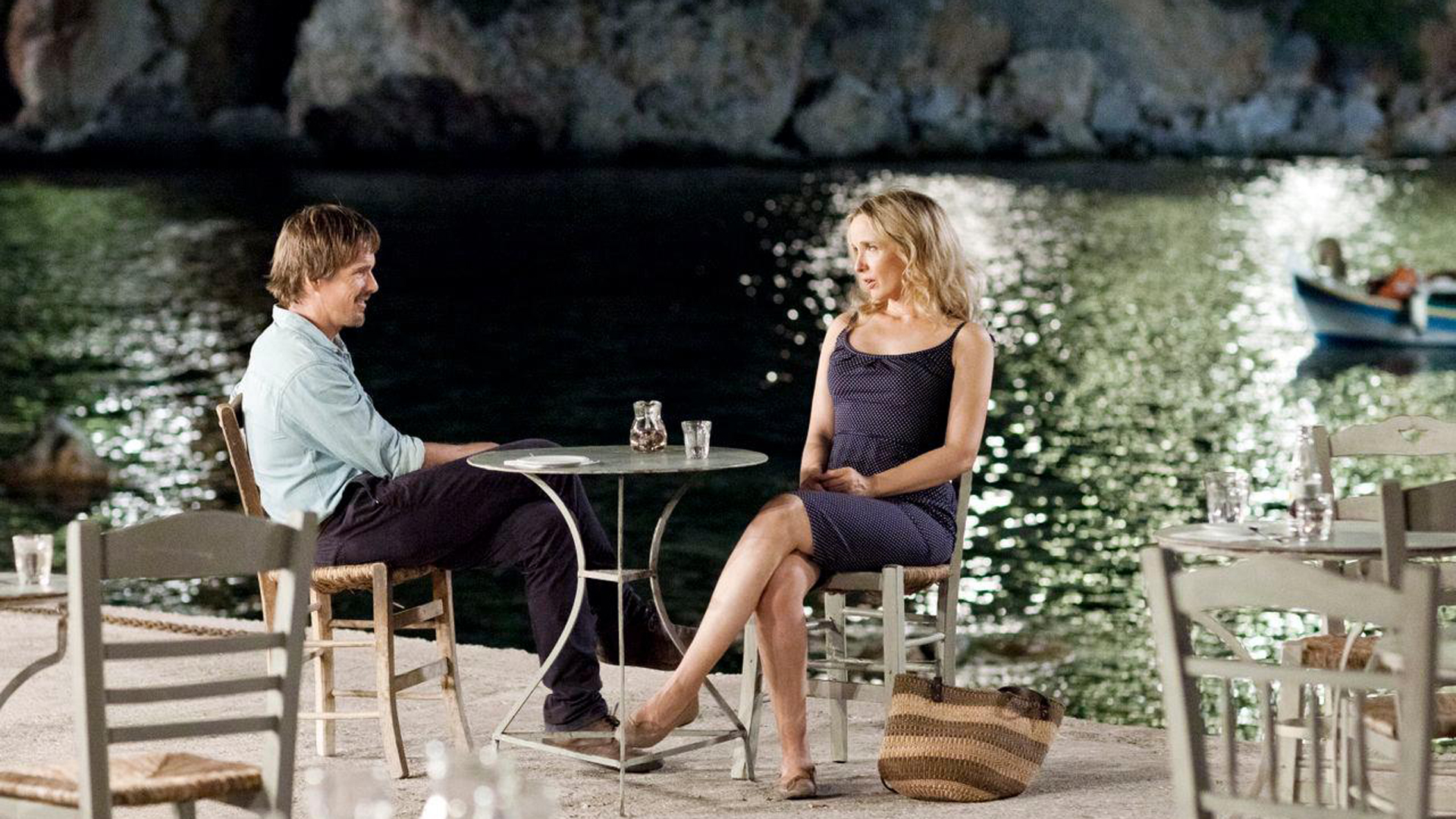In anticipation of the Academy Awards, we polled our contributors to see who they thought should win the Oscar. Once we had our winners, we asked various writers to make the case for our selection in each category. Here, Brian Tallerico makes the case for the best adapted screenplay of 2013: “Before Midnight” by Julie Delpy, Ethan Hawke & Richard Linklater. Two winners will be announced Monday through Thursday, ending in our choice for Best Picture on Friday. Click here for Best Supporting Actress and Best Supporting Actor.
The Oscars force incredibly difficult comparisons. How does one even equate what John Ridley accomplishes with his fearless adaptation of Solomon Northup’s “12 Years a Slave” to Terence Winter’s use of non-stop dialogue to define character in his telling of the rise and fall of Jordan Belfort in “The Wolf of Wall Street“? Both would be deserving Academy Award winners in most years and both came close to earning our pick to take home Oscar in this highly-contested category. And yet it was a film with that ignominious appellation of sequel that ended up our deserving winner. Although can you really call “Before Midnight” by Julie Delpy, Ethan Hawke, and Richard Linklater a traditional sequel? It is more than just another chapter in a series; it is the continuation of the story of Jesse and Celine, two cinematic characters who have transcended the traditional romantic drama genre to feel more like old friends.
Linklater, Delpy, and Hawke’s “Before Sunset” ended with a moment of unabashed romance: Jesse missed his flight, meaning that he had left his family behind to seek true love with Celine. A generation sighed a romantic “awwwwww.” And yet the brilliant foundation of their follow-up builds on the ripple effect of the impulsiveness of that decision. Even great love has real-world impact. If Jesse hadn’t made that choice, he might not be saying goodbye to his son at the start of “Before Midnight.” As Jesse considers his past and future, it pulls at some repressed resentments within Celine as well, and the two get into a heated discussion. For the next 100-or-so minutes, we are a fly on the wall for a marriage altercation that feels as real as any in decades. Few films have more deftly captured how married couples can love each other and yet resent decisions that brought them there in precisely the same moment (and few films have a more perfect ending). And don’t for a second presume that just because the chemistry feels
natural and dialogue never less than organic that there’s “less writing” going on than in this category’s competition. There’s not a line, beat, or emotion in “Before Midnight” that feels anything less than true. In a year with some undeniably remarkable competition, it’s our choice for Best Adapted Screenplay.
Click here for our winner for Best Original Screenplay and come back tomorrow for Best Documentary and Best Director.












